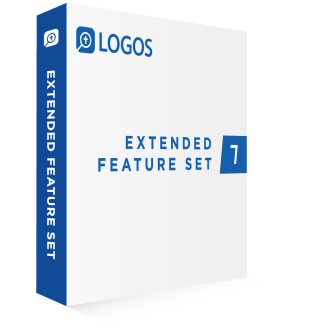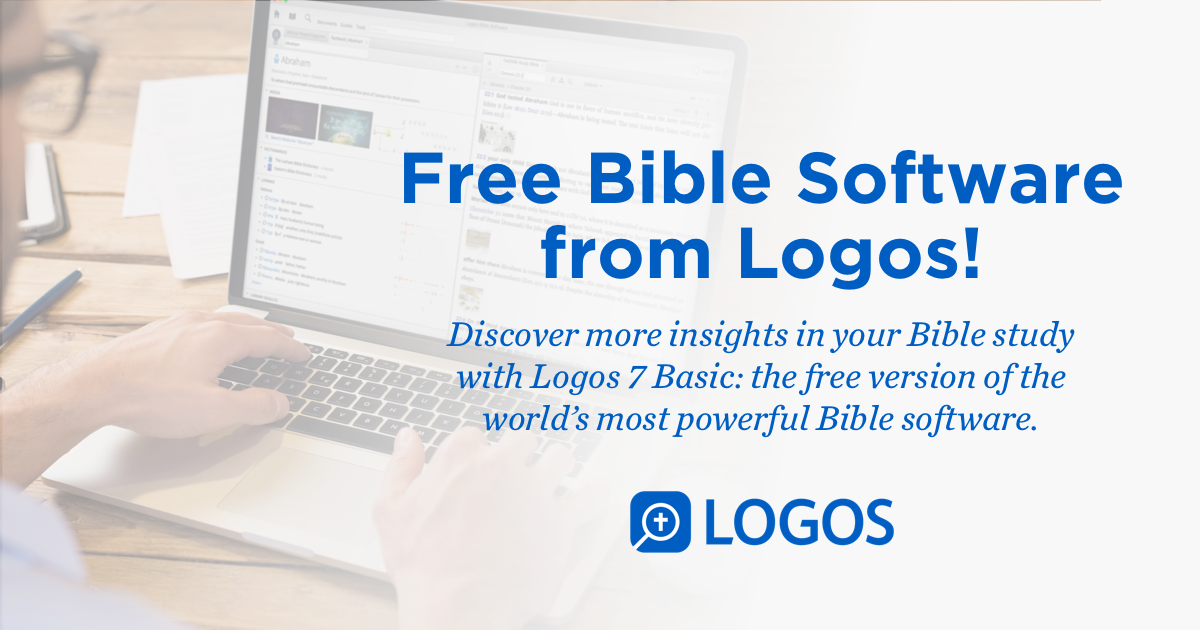LeRoy Whitman
 As a Bible Translator, I have appreciated Logos (since it was Libronix), and invested a lot of money in it, despite having free tools availabel, because I could have quality commentary sets, and even the UBS Guides, etc., in one resource, readily searchable together. Now, rather than updating the software in a way that allows customers to continue to use the software - needed to continue to properly access the reosurces I "bought" (or thought I bought) - Logos is requiring payment for software upgrades. Microsoft OS and its products, for example, does not require additional fees for upgrades. I think Logos should rethink its policy; I am no longer recommending it to others, unfortunately, and am a bit "stuck" as to what I should do, as there was implied contract - in spending so much to "buy" digital resources - that these would continue to be just as readily available. I am thinking a parallel situation would be if Kindle software would "update/upgrade" every year or few years, and require me to pay additional for the books I already bought.
As a Bible Translator, I have appreciated Logos (since it was Libronix), and invested a lot of money in it, despite having free tools availabel, because I could have quality commentary sets, and even the UBS Guides, etc., in one resource, readily searchable together. Now, rather than updating the software in a way that allows customers to continue to use the software - needed to continue to properly access the reosurces I "bought" (or thought I bought) - Logos is requiring payment for software upgrades. Microsoft OS and its products, for example, does not require additional fees for upgrades. I think Logos should rethink its policy; I am no longer recommending it to others, unfortunately, and am a bit "stuck" as to what I should do, as there was implied contract - in spending so much to "buy" digital resources - that these would continue to be just as readily available. I am thinking a parallel situation would be if Kindle software would "update/upgrade" every year or few years, and require me to pay additional for the books I already bought.- *available
- LeRoy, thank you for your investing with our software. Logos 7 Basic is available as a free update to access the resources that were previously purchased. Upgrades like the Extended Feature Set add additional features and resources to an account.
 You can get these in Kindle format now, greatly reduced from the price of the hardback volumes, too. It is possible, therefore, to get a volume just when you need it. I am debating whether the Logos price structure is sufficiently discounted to make it worth it to hold them in my library - especially when they keep making me pay for new updates to properly access the considerable investment I already made (thinking I would always have their program on my computer, able to utilize them, which is how I understood the implied purchase contract).
You can get these in Kindle format now, greatly reduced from the price of the hardback volumes, too. It is possible, therefore, to get a volume just when you need it. I am debating whether the Logos price structure is sufficiently discounted to make it worth it to hold them in my library - especially when they keep making me pay for new updates to properly access the considerable investment I already made (thinking I would always have their program on my computer, able to utilize them, which is how I understood the implied purchase contract).- Actually, James, you CAN select from 3 different "Feature Sets" to buy the tools you want at different price levels. Visit the page link below and then scroll down to the Feature Sets section to select the best level for you. (These can be purchased separately from any books or base packages). See: https://www.logos.com/basepackages#features
- I've bought some Kindle and Apple book such as the Counterpoint series, because they were dirt cheap. But I often hate the formatting and hampered use for research. But I wanted to say: no one needs to "keep paying" to "properly access" the features--that you ALREADY have. If you are good with that, then that is all you have to pay, you will always get free updated software. The problem is when we want the shiny new bells and whistles, like expanded search tools, etc. But if you're good with what you've got, no need to pay and your software will always be updated at no cost to you.
- I just checked Kindle prices. Makes Logos look better.
 I liked Logos until it made me upgrade on a regular basis by paying for essentially new (in other words, unfamiliar and need-to-relearn) platforms, and Requiring that in order for me to continue to utilize a tool I already invested my money into in order to have access to my scholarly library. And lat time I opened it (in a remote area, away from internet access - which is why I bought and carry electronic resources on my laptop), the "interlinear" had no interlinear to work from! In order to learn how to use the new upgrades, I have to pay for a course! I have neither the money nor the time to do this, so the result of upgrades for me is a less powerful tool, which I use anyway because it is where I have a Significant investment of resources. Only the searches now make it more difficult to find the resources, costing me more, not less, time, or sometimes compromise of quality, because I do not have the time (when a pressing translation question is at hand) to find out how to re-learn a new system to find a resource that will not come up in a search box. WHY don't you allow a simple Resource list, a window with commentaries, Bible dictionaries, and Bible categories in one list, from which I can find and select what I want to open?
I liked Logos until it made me upgrade on a regular basis by paying for essentially new (in other words, unfamiliar and need-to-relearn) platforms, and Requiring that in order for me to continue to utilize a tool I already invested my money into in order to have access to my scholarly library. And lat time I opened it (in a remote area, away from internet access - which is why I bought and carry electronic resources on my laptop), the "interlinear" had no interlinear to work from! In order to learn how to use the new upgrades, I have to pay for a course! I have neither the money nor the time to do this, so the result of upgrades for me is a less powerful tool, which I use anyway because it is where I have a Significant investment of resources. Only the searches now make it more difficult to find the resources, costing me more, not less, time, or sometimes compromise of quality, because I do not have the time (when a pressing translation question is at hand) to find out how to re-learn a new system to find a resource that will not come up in a search box. WHY don't you allow a simple Resource list, a window with commentaries, Bible dictionaries, and Bible categories in one list, from which I can find and select what I want to open? Anything by Dr. Stephen Levinsohn needs to be read and reckoned with as we move forward. He helped us see connectives in the non-Indo-European language into which we are translating Scripture. Within an hour's time in class and five minute's discussion with the speaker of the language, he helped the native speaker see connectives in his own language (and one's that I, as a linguist familiar with the language had missed). Furthermore, Levinsohn takes the Greek text seriously as well, and capably applies the insights of linguistics (in other words, takes the language as an actual functional language rather than a dictated magic book from which you can "extract" meaning if you study words with the eisegesis you bring to the text!) - he applies theses linguistics insights not just to languages into which we translate, but TO THE GREEK TEXT ITSELF. This important advance is an watershed event in exegesis of the ancient texts that we rightly call the inspired Scriptures.
Anything by Dr. Stephen Levinsohn needs to be read and reckoned with as we move forward. He helped us see connectives in the non-Indo-European language into which we are translating Scripture. Within an hour's time in class and five minute's discussion with the speaker of the language, he helped the native speaker see connectives in his own language (and one's that I, as a linguist familiar with the language had missed). Furthermore, Levinsohn takes the Greek text seriously as well, and capably applies the insights of linguistics (in other words, takes the language as an actual functional language rather than a dictated magic book from which you can "extract" meaning if you study words with the eisegesis you bring to the text!) - he applies theses linguistics insights not just to languages into which we translate, but TO THE GREEK TEXT ITSELF. This important advance is an watershed event in exegesis of the ancient texts that we rightly call the inspired Scriptures. "upholds the cherished doctrines of ... the imputed righteousness of Christ—while embracing many of the profound insights of NPP." Kind of defeats the purpose doesn't it. It "embraces" while not recognizing the point, which is to get back to reading the text without anachronistic Greek theology debates, and read it like ... well, like Paul was talking to fellow Jews, and distinguishing salvation from Judaizers. Romans 2:1‑11, 16 is clear enough, and does not need "reinterpretation" ‑ according to another gospel.
"upholds the cherished doctrines of ... the imputed righteousness of Christ—while embracing many of the profound insights of NPP." Kind of defeats the purpose doesn't it. It "embraces" while not recognizing the point, which is to get back to reading the text without anachronistic Greek theology debates, and read it like ... well, like Paul was talking to fellow Jews, and distinguishing salvation from Judaizers. Romans 2:1‑11, 16 is clear enough, and does not need "reinterpretation" ‑ according to another gospel. This is excellent stuff. It does need noted that just because social order has a creedal foundation by nature, and that previous ages have had Christian creeds providing order, it does not follow that we should build on those creeds without change. If they were perfect, the Millennium would have been manifest. Obviously, we need improvement, and so we need to have creeds that reflect better understanding of Scripture and our world, in order to have a more reformed social order, reflecting better the Kingdom of God. (For certainly a State Church resembled more the beast and false prophet than the disciples' awe and loving fellowship in the book of Acts.)
This is excellent stuff. It does need noted that just because social order has a creedal foundation by nature, and that previous ages have had Christian creeds providing order, it does not follow that we should build on those creeds without change. If they were perfect, the Millennium would have been manifest. Obviously, we need improvement, and so we need to have creeds that reflect better understanding of Scripture and our world, in order to have a more reformed social order, reflecting better the Kingdom of God. (For certainly a State Church resembled more the beast and false prophet than the disciples' awe and loving fellowship in the book of Acts.)



